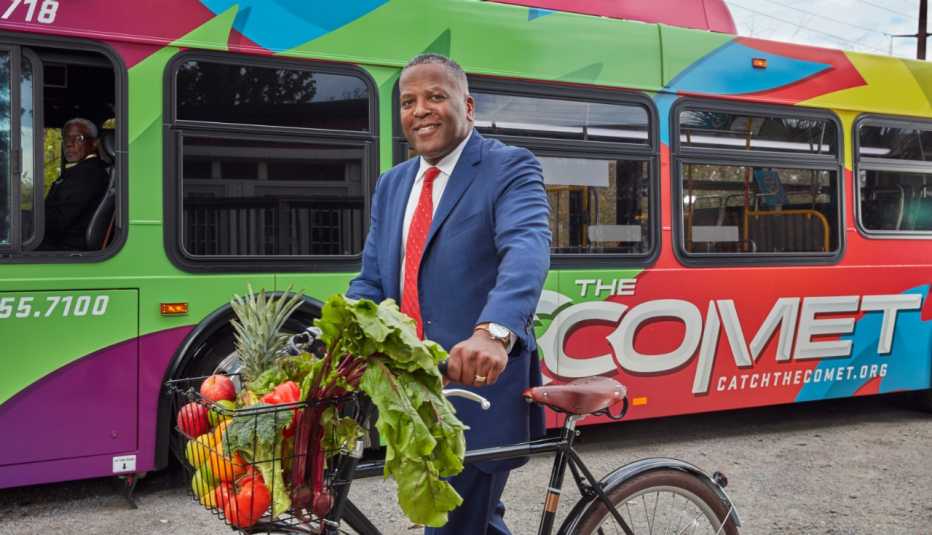AARP Hearing Center


Columbia, South Carolina, is a car town, or as Mayor Steve Benjamin puts it, “an F-150 community,” referencing the popular Ford pickup. “We drive everywhere.”
But Benjamin has been trying to get residents onto buses and bicycles, on their feet — or even using a special ride service aimed at residents 50 and over. A healthy public transit system is particularly important for older residents who don't feel comfortable driving. And walking paths provide opportunities for residents to stay active.
Change hasn't been easy. Soon after he took office in July 2010, Benjamin lost a critical transit fight: A November 2010 referendum for a 1 percent sales tax increase to pay for transportation projects failed. Without the money, the public bus system, which had been privately owned until 2002, deteriorated. Routes were cut and service slashed. By 2012, when the referendum came up for another vote, the situation was dire.
"We all went back to the drawing board and came up with a very specific list of priority projects,” Benjamin says, a list that included more money for public transportation but also included bikeways and greenways.
Benjamin played an important part in the get-out-the-vote effort. He attended community meetings and worked with the county and the city council. “He was the de facto campaign manager,” says Rick Silver, a public relations consultant for the transit authority. The countywide measure passed, with strong support from city voters.
Seven years later, the region's bus system, the Comet, has transformed into an efficient and modern operation, with a new fleet of vehicles equipped with Wi-Fi, new routes and soaring ridership — up 70 percent from 2012 to 2017. In 2018, the system partnered with Uber and Lyft to give riders a $5 credit toward trips to and from the supermarket, easing the struggles of carrying groceries on a bus.
Benjamin, 50, a Democrat and the city's first African American mayor, sees transit as a way to tackle other social challenges. Consider food deserts — lower-income areas that lack large grocery stores. It can take years to persuade a supermarket chain to build in a new location. So why not bring the people to the stores? With this idea in mind, Benjamin appointed John Andoh, the chief executive officer of the transit authority, to the city's food policy committee.
When Andoh proposed the ride-hailing program, which has proved popular in the city's lower-income neighborhoods, Benjamin started promoting it on social media and sharing the idea with other cities.
Andoh also worked with AARP on a pilot program called Ride@50+. Users can visit the website, an app or even call a real person on a phone line, and indicate their pickup spot and destination.
Ride@50+ plots out a rider's trip by pulling together various transportation options — Comet buses, ride shares, taxis and volunteer drivers, who provide discounted rides. The program is open to all ages but targets riders age 50-plus.

































































More on Home and Family
VA Caregiver Benefit Moving to Direct Deposit Only
Deadline to enroll is Oct. 1, before the VA stops sending paper checks